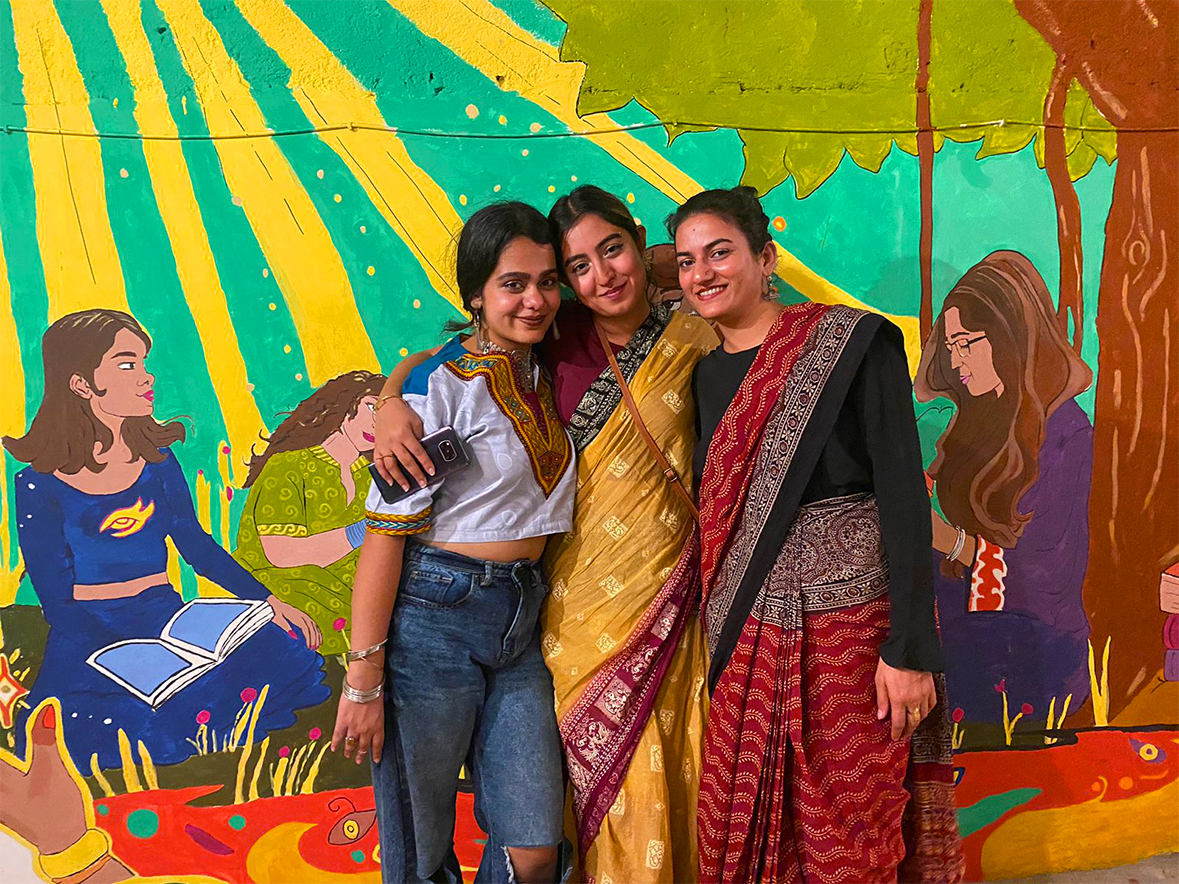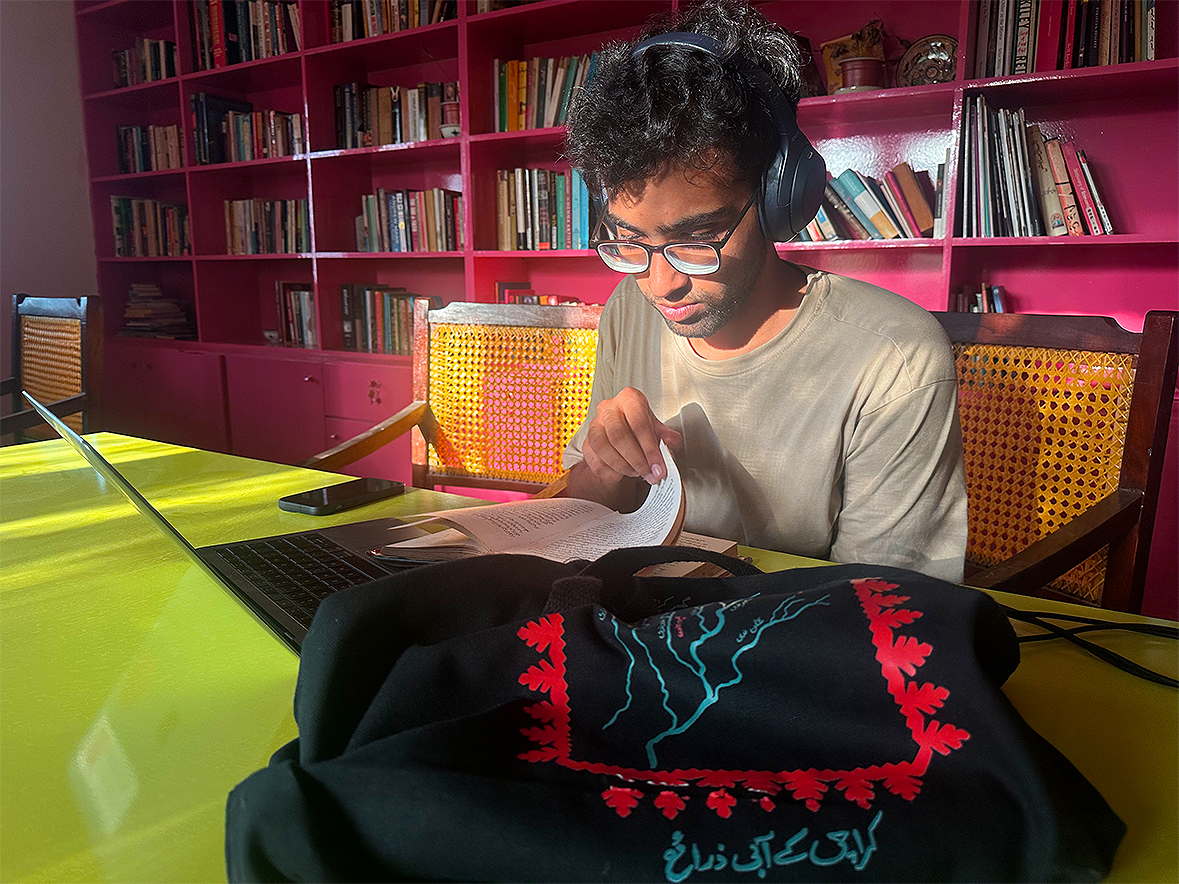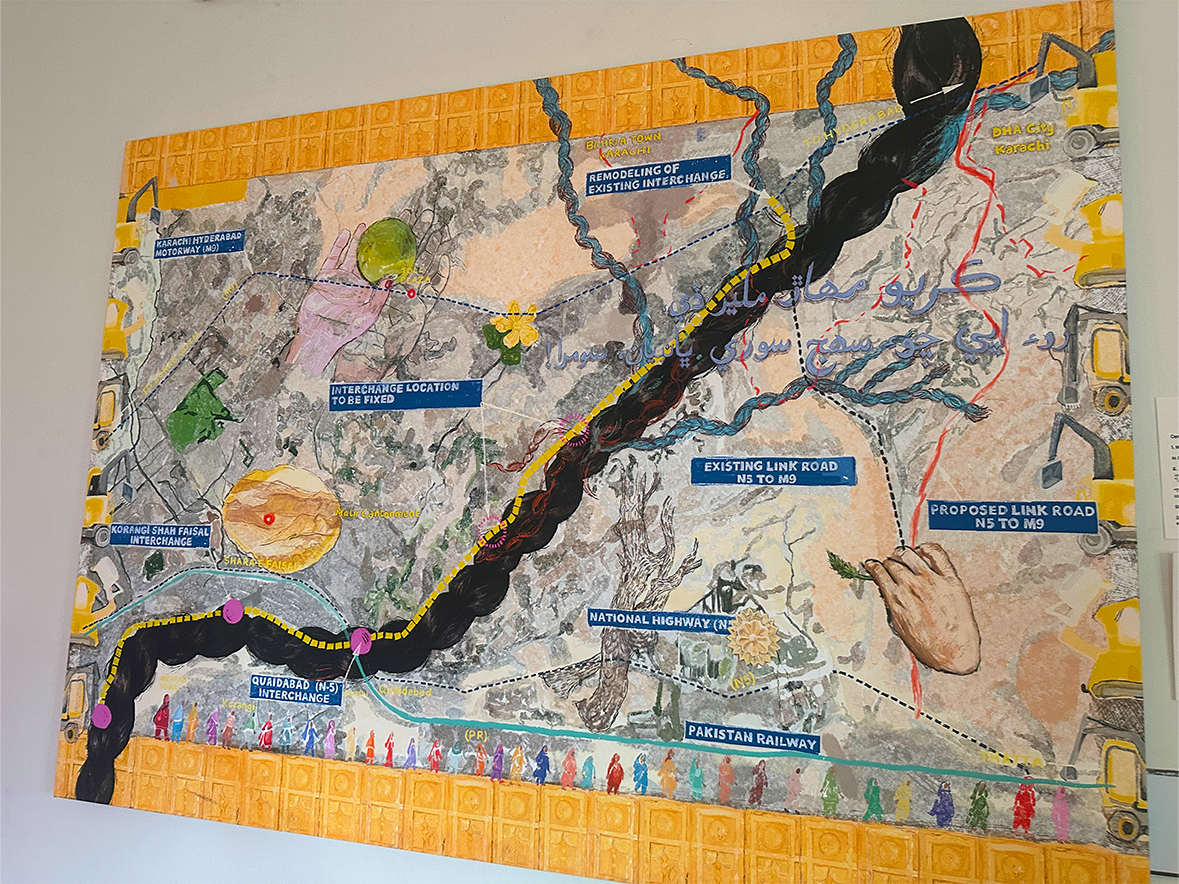KARACHI: In a quiet, old bungalow near the Sindhi Muslim Food Street and the famed Zahid Nihari restaurant on Tariq Road, a new space in Karachi offers a rare kind of nourishment: a feast for the mind.
Launched last month, the citizen-run free Kitab Ghar Karachi is more than just a library but aims to inspire people, especially young curious minds to read, think critically, and engage in intellectual conversations, cultivating creativity and renewing the exchange of ideas in a country where such spaces are quietly disappearing.
Kitab Ghar seeks to revive a library culture that was vibrant until the 1990s, when book houses in places like Karachi, Lahore and Islamabad drew students, writers and literary enthusiasts, particularly during the dynamic literary decades of the 1970s and 1980s.
Before the digital era, libraries were among the few trusted sources for books, research and periodicals but the spread of online resources and the Pakistani state’s limited prioritization of these intellectual sanctuaries have gradually led to a decline.
“We want people to come to the library and start that [reading] culture again in Pakistan,” Areeba Fatima, one of the co-founders of the free library, told Arab News.

Co-founder of Kitab Ghar, Areeba Fatima (center), poses for a picture with her colleagues at the library in Karachi, Pakistan, on October 19, 2024 (Areeba Fatima)
Beyond providing a serene reading environment, she said, Kitab Ghar Karachi wanted to cultivate a community of thinkers and doers by hosting regular events and discussions on a range of topics, from politics to art.
“We want to foster, nourish and develop communities of people who being at a public library enjoy interacting,” Fatima added.
Karachi’s Kitab Ghar is the sister library of one in Pakistan’s eastern city of Lahore, launched in 2021, and the brainchild of Fatima’s friend Zara Suhail Mannan, who completed four years of education at Yale University and came back with the concept of combining reading with community development.

The picture taken on November 4, 2024, shows a board reading "By The People, For the People" at the gate of Kitab Ghar in Karachi, Pakistan. (AN photo)
“She thought that we were going to set up a public library and community space together, which made a lot of sense to me,” Fatima, who was then a student at Lahore University of Management Sciences, recalled.
With the help of a third friend, Airas Qadir, Mannan and Fatima started collaborating with civil society organizations, and finally Mannan rented a space for Kitab Ghar in Lahore, where readers come to read books and where regular events are held. That model is now being replicated in the southern port city of Karachi, where the library was launched on Oct. 19.
“When we all found ourselves in Karachi, we decided to open Kitab Ghar Karachi,” said Fatima.
Like the Lahore space, the library in Karachi is also funded by patrons who each donate between $18 and $90 per month.
Muazzam Ali Tahir, a patron, and regular visitor who recently moved from Islamabad to Karachi for work, said he was looking for a place where he could both read and work.
“When I was studying abroad, libraries were like a key place where people could go,” he said. “People could also hang out, work and collaborate with each other.”

Muazzam Ali Tahir is reading a book at Kitab Ghar Library in Karachi, Pakistan, on November 4, 2024 (AN photo)
Javeria Naeem, 20, who runs a fashion business, is also a regular visitor.
“I’ve always loved Kitab Ghar Lahore, so I was thrilled about its Karachi chapter,” she said, adding that other libraries she visited often lacked a “sense of community.”
“It’s not an isolated, boring place with just books like most libraries,” she added. “It’s lively and makes you feel great.”

The picure taken on November 4, 2024, shows a map in the library in Karachi, Pakistan. (AN photo)
Syed Abdur Raffay Shah, 19, an artist and designer, said he was a regular visitor of the place, describing Kitab Ghar as a “unique experience.”
“I used to spend over 12 hours in libraries just studying and relaxing, but this one stands out with its welcoming atmosphere,” he said. “It has a special communal feel, as if everyone here is contributing to restoring Pakistan’s educational landscape.”
The library has several events planned in the coming weeks.
“We can generate a conversation on blasphemy or feminism or other topics which are very significant, so that is what we are trying to do,” Fatima, the co-founder, said, adding that the “mission” that began in Lahore would continue beyond Karachi.
“We will make more Kitab Ghar libraries in different cities of the country as we aim to create a Pakistan where people read, think and discuss, where people are politically mature and where they matter the most.”



















